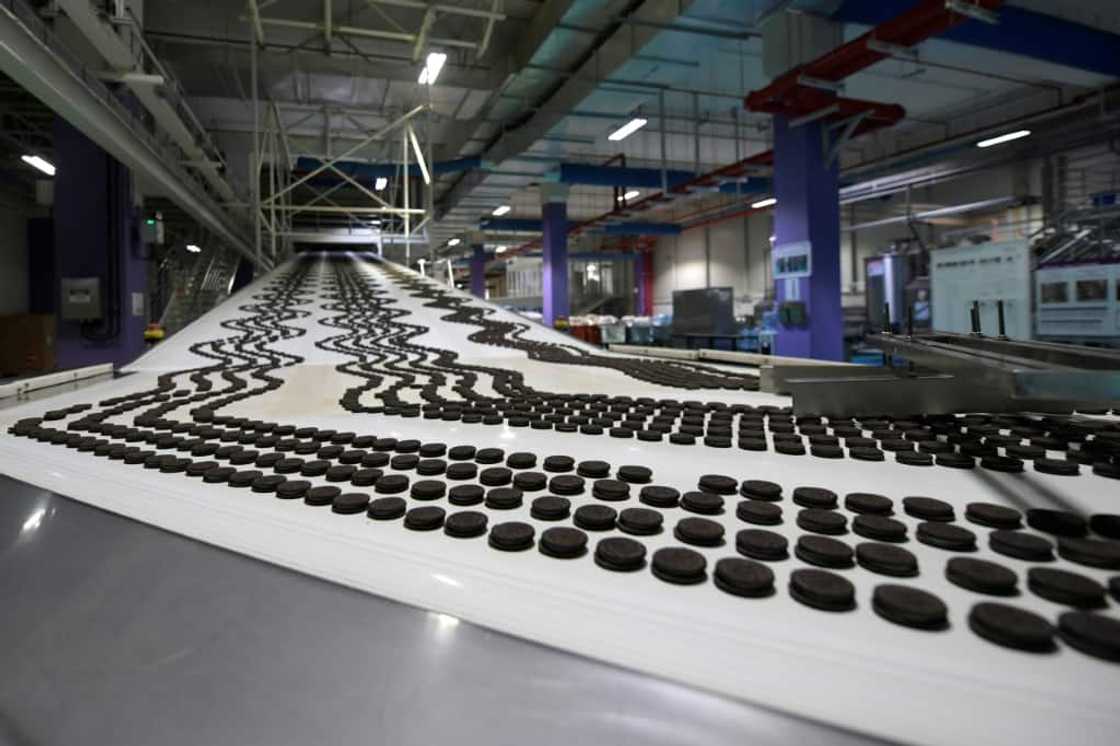EU hits Oreo maker Mondelez with 337.5 mn euro antitrust fine

Source: AFP
PAY ATTENTION: Let yourself be inspired by real people who go beyond the ordinary! Subscribe and watch our new shows on Briefly TV Life now!
The EU on Thursday slapped a 337.5 million euro ($366 million) fine on Mondelez, the US confectioner behind major brands including Toblerone and Oreo, for forcing consumers to pay more by restricting cross-border sales.
Mondelez, formerly called Kraft, is one of the world's largest producers of chocolate, biscuits and coffee, with revenue of $36 billion last year.
The EU fined Mondelez "because they have been restricting the cross border trade of chocolate, biscuits and coffee products within the European Union," the EU's competition commissioner, Margrethe Vestager, said.
"This harmed consumers, who ended up paying more for chocolate, biscuits and coffee," she told reporters in Brussels.
"This case is about price of groceries. It's a key concern to European citizens and even more obvious in times of very high inflation, where many are in a cost-of-living crisis," she added.
The penalty is the EU's ninth-largest antitrust fine and comes at a time when food costs are a major concern for European households.
PAY ATTENTION: stay informed and follow us on Google News!
Businesses have come under scrutiny for posting higher profits despite soaring inflation following Russia's 2022 invasion of Ukraine, but that has since slowed down.
The free movement of goods is one of the key pillars of the EU's single market.
Mondelez brands also include Philadelphia cream cheese, Ritz crackers and Tuc salty biscuits as well as chocolate brands Cadbury, Cote d'Or and Milka.
The EU's probe dates back to January 2021 but the suspicions had led the bloc's investigators to carry out raids in Mondelez offices across Europe in November 2019.
The European Commission, the EU's powerful antitrust regulator, said Mondelez "abused its dominant position" in breach of the bloc's rules by restricting sales to other EU countries with lower prices.
For example, the commission accused Mondelez of withdrawing chocolate bars in the Netherlands to prevent their resale in Belgium where they were sold at higher prices.
'Isolated incidents'
The EU said Mondelez limited traders' ability to resell products and ordered them to apply higher prices for exports compared to domestic sales between 2012 and 2019.
According to the commission, between 2015 and 2019, Mondelez also refused to supply a trader in Germany to avoid the resale of chocolate in Austria, Belgium, Bulgaria and Romania, "where prices were higher".
Vestager said within the EU, prices for the same product can vary significantly, by 10 to 40 percent depending on the country.
The issue is of grave concern to EU leaders.
Greek Prime Minister Kyriakos Mitsotakis, in a weekend letter to European Commission chief Ursula von der Leyen, urged the EU to take on multinationals and railed against different costs for branded essential consumer goods across member states.
Vestager stressed the importance of traders' ability to buy goods in other countries where they are cheaper.
"It increases competition, lowers prices and increases consumer choice," she added.
Mondelez responded by saying the fine related to "historical, isolated incidents, most of which ceased or were remedied well in advance of the commission's investigation".
"Many of these incidents were related to business dealings with brokers, which are typically conducted via sporadic and often one-off sales and a limited number of small-scale distributors developing new business in EU markets in which Mondelez is not present or doesn't market the respective product," it added in a statement.
The giant last year put aside 300 million euros in anticipation of the fine.
"No further measures to finance the fine will be necessary," it said.
PAY ATTENTION: Follow Briefly News on Twitter and never miss the hottest topics! Find us at @brieflyza!
Source: AFP




